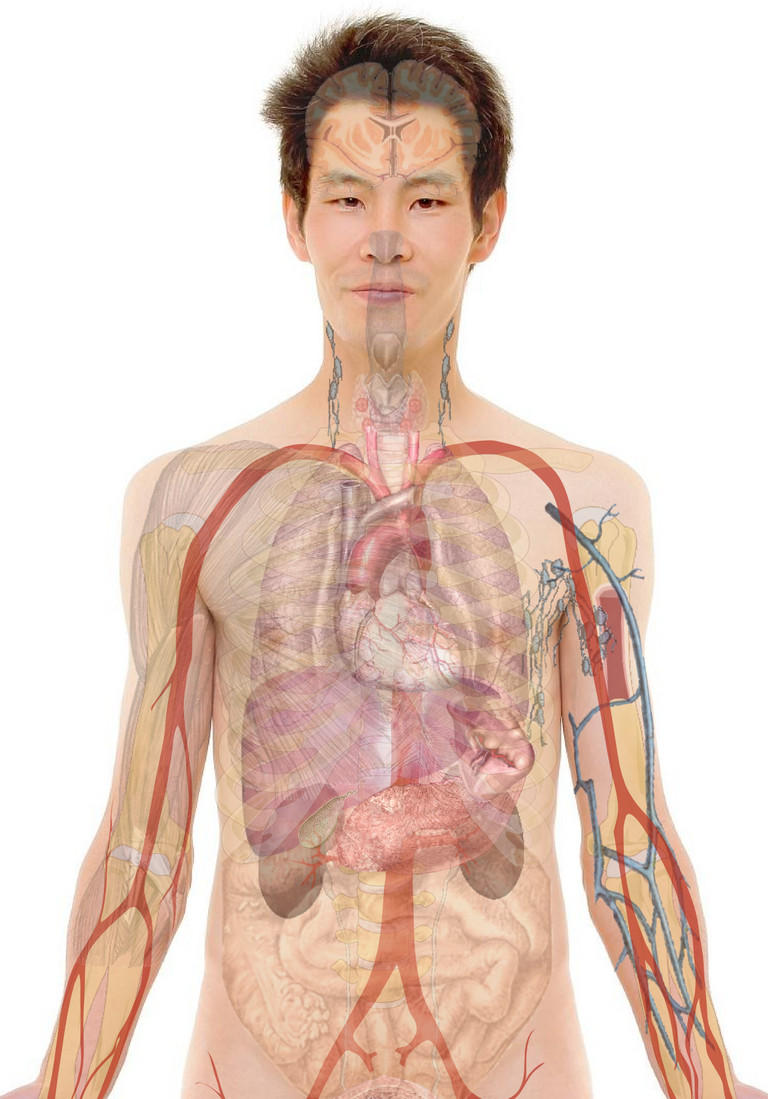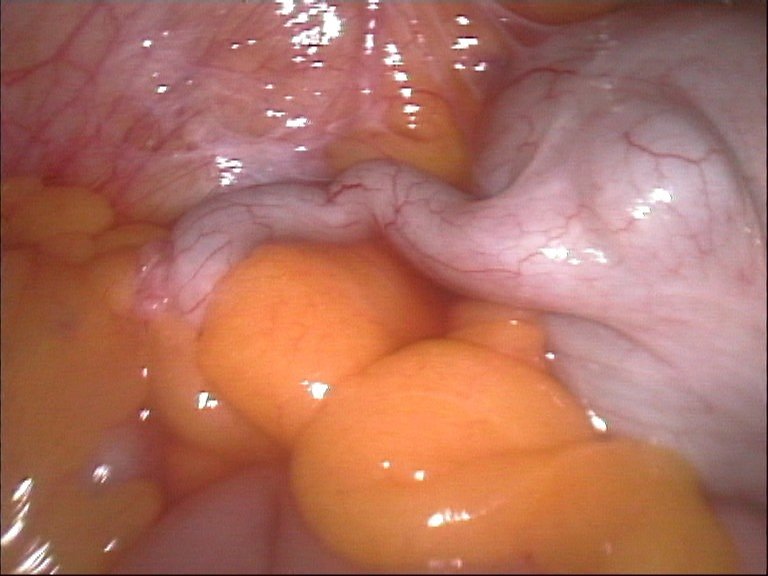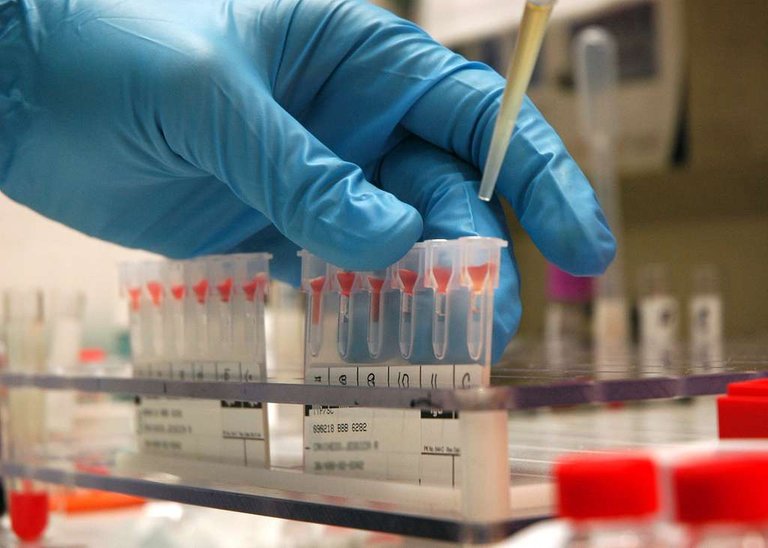The Intricacies of Our Body: Looking at Temperature Regulation, Sleep, Appendix, and Blood Typing
Our bodies are marvels of complexity, constantly working behind the scenes to keep us alive and thriving. While we go about our daily routines, our bodies are engaged in a myriad of fascinating processes to maintain equilibrium and ensure our well-being.
To begin, you must have been told that the human temperature when healthy is around 37 degrees celsius. Why does the body stay around this temperature and how does it maintain it is a question a lot of people do not bother to ask. The body maintains the temperature by expanding the blood vessels allowing for more blood to pass, in a process known as vasodilation, allowing for sweat thereby helping the body cool down, and when the temperature is cold, the vessel constricts, leading to shivering and warming up.

https://commons.wikimedia.org
Your body maintains this temperature because a shift upwards or below this temperature for a long period of time, such as a long fever, or extreme cold in freezing temperature can lead to loss of function of cells in the body, as well as proteins in the body. A theory says that 37 degrees Celsius in human temperature is responsible for repelling fungal pathogens. The study showed that amphibians and reptiles rely on external heat Ectotherms get a lot of fungal diseases while endotherm counterparts do not have fungi infection easily. Also, the scientist showed that for the body not to keep eating food and burning energy in the form of heat, the best temperature is 36.7 degree Celsius.
While a lot of people sleep, they do not understand why the body needs to shut itself down for a while. A lot of people just want to be on this shutdown mode for as long as possible, or just not get into the mode at all. So, is it possible not to sleep, or sleep too much and why does the body need sleep is a great question to be asked when we just do our usual daily activities?
Sleep is objectively important for our well-being, and it is no news that we need about 7 to 9 hours of sleep but at the same time, some people want to either underdo it or overdo it. While underdoing it is detrimental to our health, some people do not know that oversleeping is also bad for us. it has been linked to diabetes, heart disease, and depression. A study in 2014, with 894 pairs of twins showed a genetic risk of depression, which was higher in subjects that slept lesser than 7 hours, and higher than 9 hours. Also, a study showed that the risk of having coronary disease in adults who sleep for less than 4 hours is the same as in people who sleep for more than 8 hours daily.

https://commons.wikimedia.org
One part of the body that has landed a lot of people in the hospital is the appendix. In fact, a lot of people didn't know about the appendix until they were rolled into the emergency ward and had to undergo an operation. It has been regarded as a part of the human body that isn't functional for anything. A quick one, the appendix is an extension of tissue from the cecum, and when it is inflamed, it causes stomach upset which increases over time. While the appendix is said to be useless, its inner layer houses densely packed immune cells such as the T-cells, the B-cells, and Natural killer cells, so we can say it houses our immune cells for immune response, and it also houses the good bacteria in the gut, preventing invasion of bad bacteria.
A lot of us just work and do not even know our blood type, but for those of us that know our blood type, we will be familiar with the A, B, AB, and O, with each of them being positive or negative. Our blood type is determined by the antigen the blood possesses and these antigens are ignored by the antibodies because they belong to us but when a different antigen gets into the blood, it fights it immediately. Your blood type is determined by the type of antigen on the surface of your Blood, and there are numerous blood groups with the ABO type of blood typing being one of the systems.
Our bodies are a fascinating ecosystem, orchestrating a multitude of processes to maintain balance as well as protect us. Although, we do not pay much attention to our body just like we pay attention to machines and engines so they do not pack up, the body still does its best keeping us safe and alive.
Reference
- (https://www.ncbi.nlm.nih.gov/books/NBK331/)
- (https://www.ncbi.nlm.nih.gov/pmc/articles/PMC6034117/)
- (https://www.ncbi.nlm.nih.gov/pmc/articles/PMC3591304/)
- (https://courses.lumenlearning.com/suny-ap2/chapter/energy-and-heat-balance/)
- (https://www.ncbi.nlm.nih.gov/pmc/articles/PMC3900629/)
- (https://www.ncbi.nlm.nih.gov/pmc/articles/PMC4950339/)
- (https://labs.la.utexas.edu/harden/files/2013/05/Watson-Sleep-Duration-and-Depressive-Symptoms-1-31-2014.pdf)
- (https://www.ncbi.nlm.nih.gov/pmc/articles/PMC2845795/)
- (https://www.ncbi.nlm.nih.gov/pmc/articles/PMC4791534/)
- (https://www.ncbi.nlm.nih.gov/pmc/articles/PMC6839473/)
- (https://www.ncbi.nlm.nih.gov/books/NBK2264/)
- (https://www.ncbi.nlm.nih.gov/books/NBK2267/)

Thanks for your contribution to the STEMsocial community. Feel free to join us on discord to get to know the rest of us!
Please consider delegating to the @stemsocial account (85% of the curation rewards are returned).
Thanks for including @stemsocial as a beneficiary, which gives you stronger support.